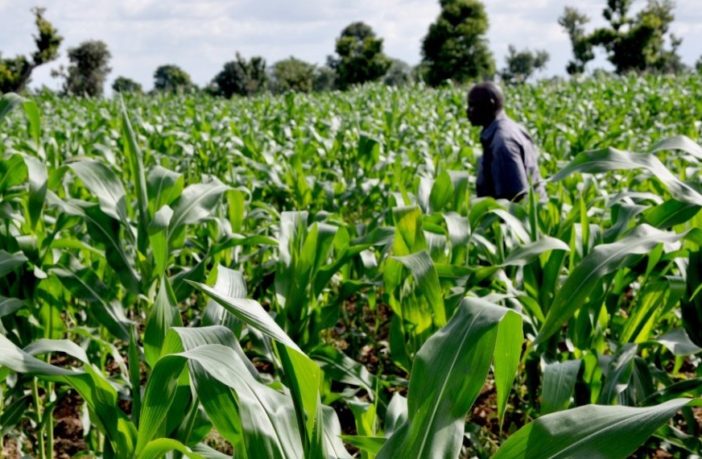Leadership NG
By Chika Izuora
Capacity building for Agritech startups in Nigeria received a boost recently as the Impulse Start-up Accelerator programme was hosted in Lagos.
The programme, which is an initiative of the Mohammed VI Polytechnic University (UM6P) is supported by OCP Group and its subsidiary OCP Africa.
The program is to help start-ups in the fields of agritech, agricultural biotech, mining tech and materials science and nanotech.
The OCP Group, UM6P and OCP Africa have created Impulse to contribute to the development of solutions to the challenges faced by the African smallholder farmer and to reinforce the innovation system of OCP Group through the creation of long term and mutually beneficial relationships with the start-up world.
The programme is also designed to contribute to the development of innovation hubs in Morocco and the rest of the African continent.
Speaking on the initiative, the Program Director, Impulse, Mr. Adnane Alaoui Soulimani, explained that Impulse is the first step towards the creation of a much bigger sector-agnostic accelerator called, MassChallenge Africa, that will accelerate each year between 50 to 100 start-ups working on African challenges.
“Startups that be will be selected for our program will benefit from the mentorship of senior managers and business experts from OCP Group, one the world’s leaders in the fields of phosphate and phosphate based fertilizers. Startups will also have access to potential business opportunities through OCP Group, UM6P and their ecosystems”, Alaoui Soulimani said
In his keynote address, Mr. Ayodele Balogun noted that until recently, much attention have not been paid to sustainable agriculture in Nigeria. “Effectively, we lose FOREX because we are not able to produce enough and process enough to satisfy ourselves” he said.
To address this trade deficit, it would be recalled that the Federal government of Nigeria recently reviewed its agricultural policies to harness the potentials of the sector in Nigeria and establish linkages that will boost the sector.
In this regard, the OCP Country Manager, Mr. Caleb Usoh mentioned that “OCP Africa is committed to supporting the Nigerian government’s effort towards the development of the agriculture sector.
In 2016, OCP Africa entered into a partnership with The Fertilizer Producers and Suppliers Association of Nigeria (FESPAN) under the “Presidential Fertilizer Initiative”, with the support of Nigeria Investment Sovereign Authority (NSIA). The partnership activities encompass the entire agricultural chain: creating fertilizer solutions, making fertilizers available on the local market at competitive prices, and fostering mentorship for Nigerian farmers.
Thanks to the partnership with FESPAN, local investments in new Fertilizer blending plants have grown from nine factories in 2016 to 25 factories within a span of three years creating a number of direct and indirect employment opportunities for Nigeria’s youths and reducing the prices of fertilizers for farmers”.
However, acknowledging the dynamics of the current trend and the need for financial literacy, another keynote speaker, Mr. Dennis Goje advised start-ups to familiarize themselves with government socio-economic policies in order to be firmly grounded in their chosen trade.
Goje stated that, “for instance, when the Federal government signed agreement on the importation of phosphate from Morocco, the policy resulted into the resuscitation of twenty-one fertilizer producing companies in Nigeria.
In Jos, one of the companies was able to employ over 200 persons directly and indirectly and that is just one of them. The consistency of government policies on agriculture since 2011 has made some of the success stories we now have possible. Therefore, start-ups and commercial farmers are able to understand the direction of government in this regard. It is critical to understand government policies as it concerns agriculture in order to be successful and I encourage start-ups to pay careful attention to these policies.”
In his remark, Mr. Adunoye Olubiyi, an Agronomist acknowledged the impact of the agritech initiatives and advised farmers to be more deliberate in engaging the processes. “One of the things we have benefited from Hello Tractor is that we have been able to scale up production without having to worry about money to make things available. Last year, we did somethings in the range of 30 hectares in terms of production. However, this year, we have been able to do about 120 hectares because of the support from Hello Tractor.
For next year, we are projecting 200 hectares. We have also gotten assistance in negotiation with other service providers and that has really help boost our operations”, Olubiyi said.
Guests at the forum expressed delight at the opportunity to expand their knowledge on the subject matter as they call on more initiatives that would drive sustainable agriculture in Nigeria.







